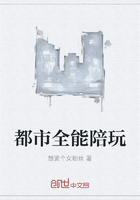"Hey, Dad! Do you have fifty bucks I could borrow?." He does. Even if he doesn' t, he will find it or go without something so he will have it. Then he feels embarrassed when we pay him back, and he says, "Now, you don' t have to pay it." but we do because it is important to do the right thing. Dad taught us that.
Dad presides over all festive events. "How is today different from other days?" Of course he knows, and knows how to explain; it is he who takes charge and knows how to do everything; he is the leader, and he is in charge of our world. The Captain of the ocean sea.
It is also okay to become the Dad who knows everything, can do everything, and who is in charge of the world.
“想拥有一个快乐童年永远都不晚。”有些人在汽车贴纸上这样写道。而我认为,对父亲的需要永远都不会晚。
小时候,世界就如我们所想的那样由父亲掌控着。的确,我知道我们国家有总统,别的国家有国王或首相,但他们并不是真正掌控这个世界的人。
父亲通晓一切,所向披靡,他永远是对的,且总能把一切安排妥当。他无异于上帝。
“嘿,爸爸!赫尔辛基在哪里?”父亲总会答道:“若你把东西归放位,就会知道它在哪儿了。”“嘿,爸爸!我确实需要知道赫尔辛基的位置。”“好吧,那我们去·百科全书。”
“嘿,爸爸!我今晚赴约用一下车,可以吗?”“当然可以,但你必须在午夜前回来。”结果,我凌晨两点半才到家,父亲一直没睡,在等着我。小的时候,我们不懂什么是爱,什么是愤慨。父亲大喊大叫,我们不知道是因为他在意,还以为他是在耀武扬威。但这次例外。他说:“上帝保佑你平安归来。去睡吧!我们有话明天再说。”“嘿,爸爸!今天我在学校惹麻烦了,我真的没做错事,可那个愚蠢的老师根本不听我的解释。” “说给我听听,发生了什么事?真是那样吗?”第二天,父亲去学校找老师谈话,将误会解除了。父亲竟如此有能耐!我甚至可以永远依赖他。
无论知道的多与少,父亲们大多是充满关爱的慈父,而且会站在我们的立场上。他为我们所做的,即使是很小的事,也会让我们觉得重要且有意义。
“嘿,爸爸!能借给我50元钱吗?”如果他有,就会借给我。即使他没有,也会想办法借给我。我们还钱给他时,他会很不自在,并说:“不必了,你不用还。”但我们要还,因为正确地做事很重要——这也是父亲教育我们的。
父亲操办着所有的庆祝活动。“今天与平日有何差异?”他当然知道差异之所在,而且知道如何解释,因为他负责和通晓一切事务的筹办。他是领导,掌控着我们的世界。他是汪洋大海中的船长。
能成为通晓一切、所向披靡、掌控世界的父亲是很不错的。
另类古
Jenny' s Anigue
佚名 / Anonymous
My six-year-old granddaughter stares at me as if she is seeing me for the first time. "Grandma, you are an antique," she says. "You are old. Antiques are oId. You are my antique."
I am not satisfied to let the matter rest there. I take out the Webster' s Dictionary and read the definition to Jenny. I explain, "An antique is not only just old, it' s an object existing since or belonging to earlier times ...a work of art ... piece of furniture." "Antiques are treasured," I tell Jenny as I put away the dictionary. "They have to be handled carefully because they sometimes are very valuable. In order to quality as an antique, the object has to be at least 100 years old. "
"I' m only 67," I remind Jenny.
We look around the house for other antiques, besides me. There is a bureau that was handed down from one aunt to another and finally to our family. "It' s very old." I tell Jenny. I try to keep it polished and I show it off whenever I can. You do that with antiques." When Jenny gets older and understands such things, I might also tell her that whenever I look at the bureau or touch it, I am reminded of the aunt so dear to me who gave me the bureau as a gift. I see her face again though she is no longer with us. I even hear her voice, and recall her smile. I remember myself as a little girl leaning against this antique, listening to one of her stories. The bureau does that for me.
There is a picture on the wall purchased at a garage sale. It is dated 1867. "Now that' s an antique," I boast. " Over 100 years old." Of course it is marked and scratched and not in very good condition. "Sometimes age does that," I tell Jenny. "But the marks are good marks. They show living, being around. That' s something to display with pride. In fact, sometimes, the more an object shows age, the more valuable it can become." It is important that I believe this for my own self-esteem.
Our tour of antiques continues. There is a vase on the floor. It has been in my house for a long time. I' m not certain where it came from, but I didn' t buy it new. And then there is the four poster bed, sent to me 40 years ago by an uncle who slept in it for fifty years.
One thing about antiques, I explain to Jenny, is that they usually have a story. They' ve been in one home and then another, handed down from one family to another, traveling all over the place. They' ve lasted through years and years.
They could have been tossed away, or ignored, or destroyed, or lost. But instead, they survived.
For a moment Jenny looks thoughtful. "I don' t have any antiques but you." she says. Then her face brightens.
"Could I take you to school for show and tell?"
"Only if I fit into your backpack." I answer.
And then Jenny' s antique lifted her up and embraced her in a hug that would last through the years.
六岁大的孙女好像第一次见到我似的,盯着我看了许久,然后说:“奶奶,你是件古。你老,古也老。你是我的古。”
于是,我找出一本《韦氏字典》,把这个词的定义读给小孙女珍妮听,以免她再误解下去。我解释道:“古不仅是古老的,它还是从很久以前流传下来的物品例如一件艺术品或是一件家具。”我边合上字典,边对珍妮说:“古是人们珍藏的宝物。有时对于很贵重的古,人们一定要小心谨慎地收藏。一件物品至少要有一百年的历史,才有资格称为古。”
我提醒她说:“我只有67岁。”
我们环顾四周,在屋内寻找除了我以外的古。那里有个柜子,它是从一位姑妈那里一代代传下来,最终传到我们家的。我告诉珍妮:“这是个很古老的柜子,我尽量把它保养得美丽无瑕,只要有机会就会展示给人们看。对待古就应该这样。”也许等珍妮长大了,能懂得一些事情时,我还会告诉她,每当我看到这个柜子或是抚摸它时,就会想起送我们柜子的那位可亲的姑妈。虽然她早已离开人世,但我对她的微笑依然记忆犹新。还记得当我还是个小女孩时,常常靠在这个柜子旁边听她讲故事。这个柜子总让我想起当年的时光。
墙上有一幅在旧货市场上买的,它上面所标的日期是1867年。“它的历史已经超过了一百年,现在也算是一件古了。”我自夸道。当然它的保养状况不是很好,已经有了明显的刮痕。“岁月有时会让一切都留下痕迹。”我对珍妮说,“然而这些痕迹都是曾经生活和存在的象征,是值得自豪地展示给世人的,因此它们都是美好的。事实上,有时,一件物品的年代越久,它的价值也就越高。”我之所以相信,是因为这些对于维护我个人的自尊心很重要。
搜寻古的旅程还在继续。地板上的花瓶,摆放在我的房子里已经很久了。我肯定当时买的是旧货,但从哪儿买的,我已经不记得了。再就是40年前一位叔叔送给我的那张床,它有四根帷杆。之前,叔叔在这张床上已经睡了50年。
我向珍妮解释,古通常都有一段故事,这是它们的特点之一。它们曾被收藏在不同的家庭,从一家传到另一家,甚至走遍了全国各地,年复一年,最终流传了下来。
也许它们曾被抛弃,或被遗忘,或曾遭破坏,又或是曾被遗失,但最终它们幸存了下来。
“除了你之外,我不要其他古。”珍妮沉思了好一会儿说,然后开心地笑了。
“我能把你带到学校给同学们看,给他们讲你的故事吗?”
我回答说:“可是你的书包要装得下我才行啊。”
之后,“珍妮的古”将珍妮抱起,紧紧拥入怀中。那个拥抱将会永存在岁月的记忆中。
现在就做!
Do It Now!
丹尼斯· E. 曼纳林 / Dennis E. Mannering
In a class I teach for adults. I recently did the"unpardonable." I gave the class homework!The assignment was to go to someone you love within the next week and tell them you love them. It has to be someone you have never said those words to before or at least haven' t shared those words with for a long time.














